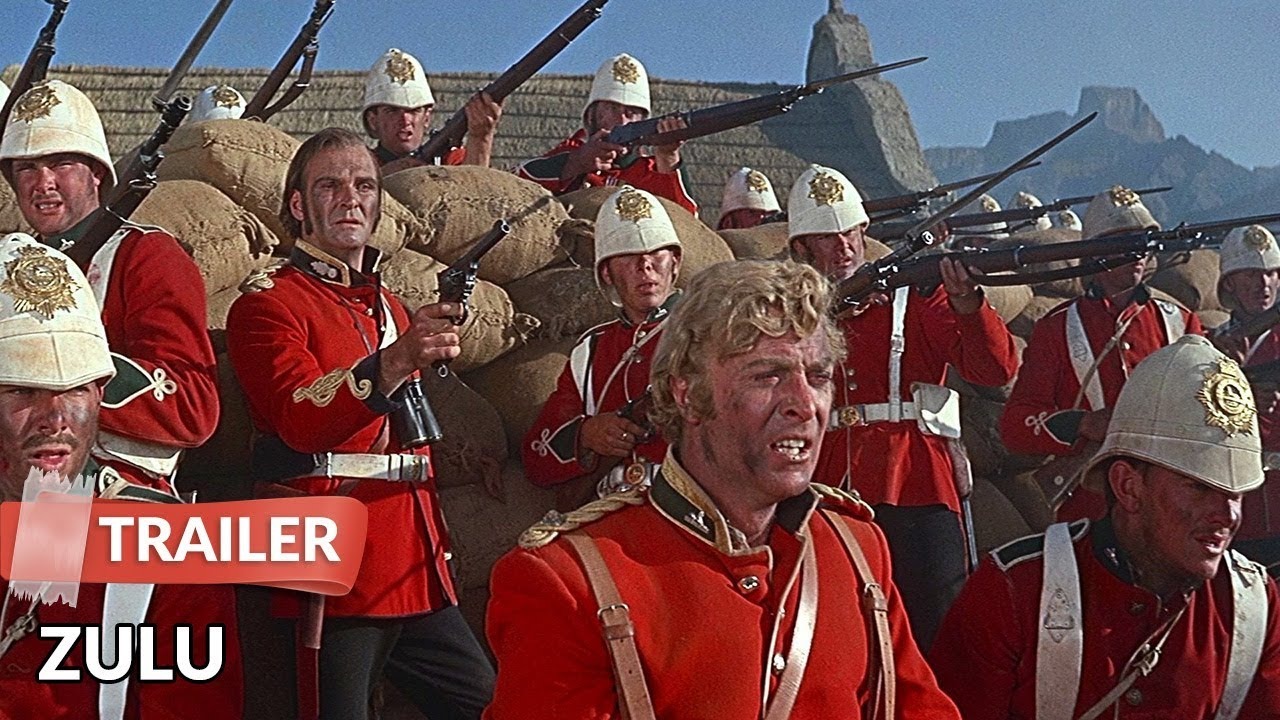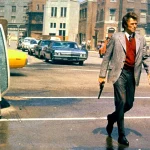Zulu (1964)

“Zulu,” directed by Cy Endfield and released in 1964, is a British historical war film that portrays the events of the Battle of Rorke’s Drift. Set against the backdrop of the Anglo-Zulu War of 1879, the film dramatizes the heroic defense of a small British outpost by a group of soldiers facing overwhelming odds. “Zulu” is widely regarded as a classic of war cinema, not only for its gripping portrayal of military conflict but also for its exploration of themes related to heroism, colonialism, and cultural clash. This essay examines the film’s narrative, character development, thematic elements, and its impact on audiences and historical understanding.
“Zulu” recounts the dramatic events of the Battle of Rorke’s Drift, a key confrontation during the Anglo-Zulu War. In January 1879, a small contingent of British soldiers, led by Lieutenant John Chard and Lieutenant Gonville Bromhead, defended the Rorke’s Drift mission station against a vastly superior force of Zulu warriors. The film vividly depicts the battle, focusing on the intense and desperate struggle of the defenders as they fend off repeated assaults by the Zulu forces.
The film’s narrative is anchored in historical events, but it also employs dramatic license to enhance the storytelling. While “Zulu” remains largely faithful to the historical account, it takes creative liberties to heighten the dramatic tension and highlight the bravery of the British soldiers. The film combines action sequences with character-driven storytelling, creating a balanced portrayal of both the physical and emotional challenges faced by the defenders.

The film features a strong ensemble cast, with notable performances by Stanley Baker, Michael Caine, and Jack Hawkins. Stanley Baker plays Lieutenant John Chard, a civil engineer turned soldier who assumes command of the defenders at Rorke’s Drift. Baker’s portrayal of Chard emphasizes his leadership qualities, strategic acumen, and unwavering resolve in the face of overwhelming adversity. Chard’s character is central to the film’s depiction of heroism and leadership under duress.
Michael Caine stars as Lieutenant Gonville Bromhead, a soldier from an aristocratic background who must overcome his initial doubts and prejudices to contribute effectively to the defense. Caine’s performance highlights Bromhead’s growth as a leader and his evolving respect for his fellow soldiers. The dynamic between Chard and Bromhead adds depth to the film, illustrating the ways in which individuals from different backgrounds can unite in the face of a common threat.
Jack Hawkins plays the role of the narrator, providing historical context and commentary throughout the film. Hawkins’ narration helps to frame the events of the battle within a broader historical and cultural context, enhancing the film’s educational value and providing viewers with a deeper understanding of the conflict.

“Zulu” explores several key themes, including heroism, colonialism, and cultural conflict. The film’s portrayal of heroism is central to its narrative, depicting the courage and determination of the British soldiers as they defend Rorke’s Drift against seemingly insurmountable odds. The soldiers’ resilience and camaraderie are highlighted throughout the film, emphasizing the personal and collective bravery of those involved.
The film also addresses themes of colonialism and cultural clash, presenting a complex and sometimes controversial depiction of the Zulu people. While “Zulu” portrays the Zulu warriors as formidable and honorable adversaries, it also reflects the colonial attitudes of the era. The film’s portrayal of the Zulu people is shaped by the perspective of the British soldiers and may not fully capture the complexities of Zulu culture and society. This aspect of the film has been the subject of critical discussion, with some viewers and scholars questioning the accuracy and representation of indigenous perspectives.

“Zulu” has had a lasting impact on audiences and the film industry, celebrated for its gripping action sequences, strong performances, and historical depiction. The film’s portrayal of the Battle of Rorke’s Drift has been praised for its authenticity and attention to detail, contributing to its status as a classic of war cinema. “Zulu” has also been noted for its influence on subsequent war films, particularly in its use of realistic battle sequences and character-driven storytelling.

The film’s portrayal of colonial warfare and heroism continues to be relevant in discussions about historical representation and cinematic storytelling. “Zulu” remains a significant work in the context of British cinema and historical film, offering both an engaging narrative and a thought-provoking exploration of themes related to conflict and leadership.

“Zulu” (1964) stands as a powerful and enduring portrayal of the Battle of Rorke’s Drift and the heroism of the British soldiers who defended it. Through its compelling narrative, strong performances, and thematic exploration, the film provides a gripping and multifaceted depiction of historical conflict. While “Zulu” reflects the perspectives and attitudes of its time, it also serves as a testament to the complexities of colonial warfare and the enduring nature of bravery and leadership in the face of adversity. As a classic of war cinema, “Zulu” continues to captivate audiences and provoke thought about the nature of heroism and the historical context in which these events occurred.










